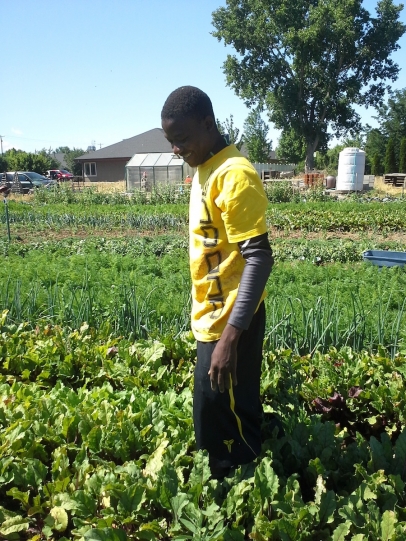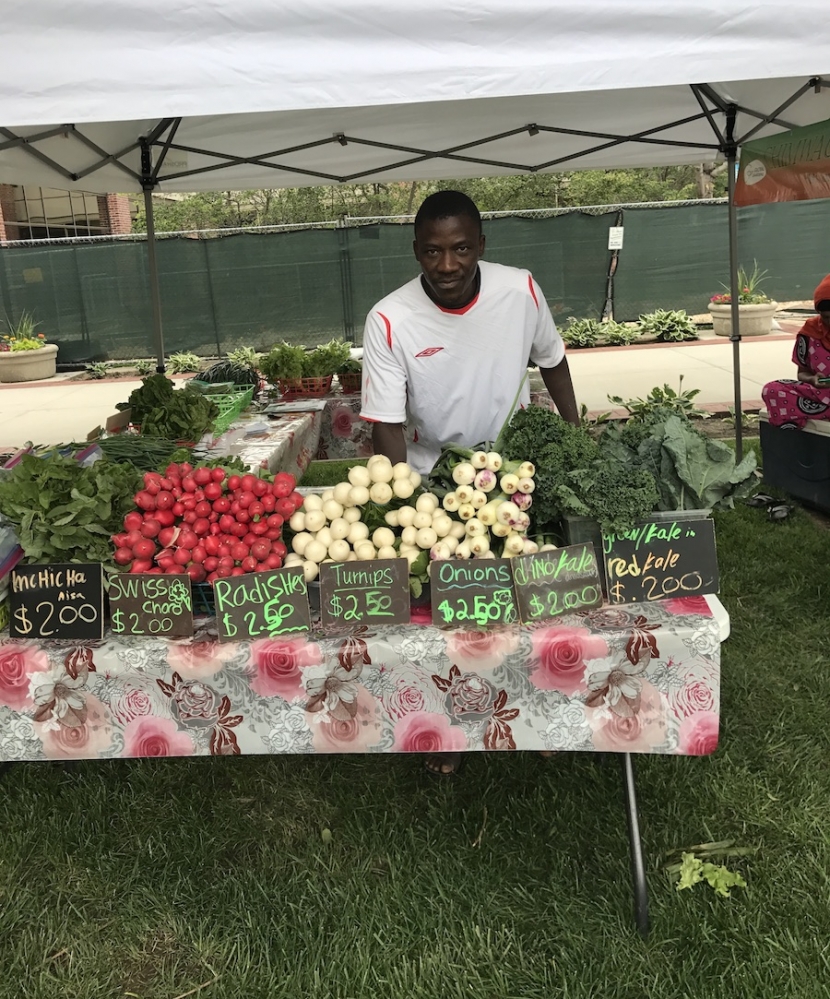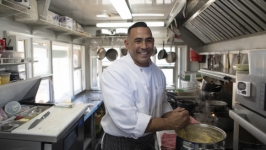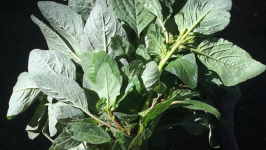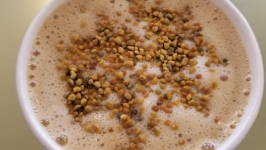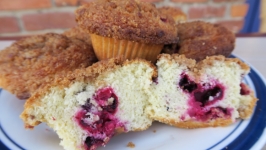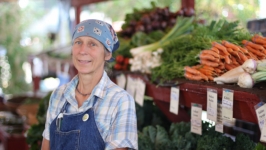Food From Different Worlds
Amidst the purple eggplants, ripe tomatoes and juicy raspberries, the Boise Farmers' Market has offered some unfamiliar new items this year: smooth-skinned melons, red-stemmed leaves and long, slender greens.
Boise has given a number of refugees from Africa and Asia a home. In return, they are giving Boiseans the opportunity to try new kinds of vegetables—and experience the taste of a different world.
This opportunity comes through Global Gardens, a nonprofit that runs nine gardens in the Treasure Valley to support refugees. Produce grown in the gardens is sold in a variety of ways, ranging from community-supported agriculture (CSA) subscriptions to booths at the Boise Farmers Market.
Working in the soil also helps the refugees find something familiar in what can be a strange land. But as they get to know the weather patterns and soils in the Treasure Valley, they have begun to grow produce from their home countries, not just for themselves but also for other refugees as well as for customers of Global Gardens.
One such farm is Chimwaga Six, which raises produce in a Global Gardens site known as the Pond Street Farm. It’s grown on land owned by the City of Boise and leased to Global Gardens.
Chimwaga Six is run by Abdikadir Chimwaga and his wife, Sarbah Bi, who married in 2010 after meeting in Boise High School. He came from Somalia, via Kenya, and she came from Thailand, via Myanmar. He has been in Idaho for 15 years, while she has been here 13 years, he said. Each of them spent several years in refugee camps before being able to come to the U.S.
Their trials don’t show on their faces. Both look younger than their ages, and with Sarbah a smile looks like it’s constantly trying to escape.
In recent years, Sarbah got the idea to order seeds from a site in Burma (as she calls it, though it is also known as Myanmar) for vegetables popular with both Africans and Asians. Then they try planting the seeds to see how well they do in the hot, dry Idaho climate and how popular the produce is with their customers.
To help, the couple prints and hands out simple recipes using the exotic ingredients. And for people who don’t get a chance to cook them right away, a number of them can be frozen, Chimwaga said. “It doesn’t get bad,” he said. “Put it in the freezer. You can still cook it.”
Here are some of the vegetables that Chimwaga and Bi have been introducing to Boise Farmers Market customers:
Bottle gourd, also known as calabasas, is found in many cultures. It’s green and smooth and tastes like a squash or a bland melon. It can be stuffed or cooked in stews. “A lot of people say we have really nice bottle gourd,” Chimwaga said.
Mchicha is typically used as the name of a particular dish using greens from the amaranth plant, though mchicha can also be used to refer to the greens themselves. It’s not surprising mchicha grows in Idaho. Another plant from the same family, which some people call amaranth and some call pigweed, grows wild in southern Idaho. In fact, the plant is so prolific that some amaranths are noxious weeds in some states.
It is often cooked with coconut milk and peanuts. Chimwaga likes to eat it with rice, he said.
Sour leaf is a red-stemmed green from Burma, related to the hibiscus. It’s also known as roselle. One of its advantages are the many options to cook it, such as a dish with okra, Chimwaga said.
But sour leaf is hard to grow in Idaho, Chimwaga said, noting that he had to plant it three times. It’s sensitive to cold, and is particular about the soil it’s grown in. “Even if it’s a little no good, it comes up and then it dies,” he said.
Water spinach is related to morning glory and sweet potato— though not to spinach, despite its name—and is another green found all through Asian cooking. Chimwaga said water spinach is similar to mchicha, but he likes the flavor of water spinach better. It can be used raw in salads or cooked and eaten with rice, he said.
Chimwaga wasn’t sure what new African and Asian vegetables the couple might add to their repertoire in future years. “We have ideas, but it takes a long time,” he said.
Boise Farmers' Market | @boisefarmersmarket
Global Gardens | @globalgardensboise


